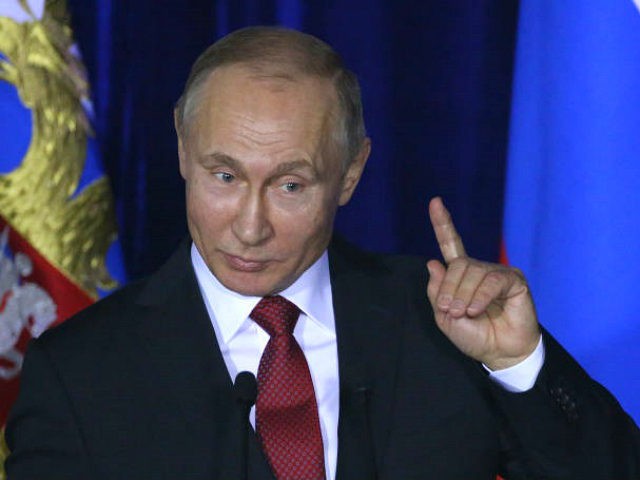Russian President Vladimir Putin suggested to NBC News’ Megyn Kelly last week that Jews might have been to blame for alleged Russian interference in the 2016 presidential election in the United States.
Putin made the remark, as quoted by the UK Daily Mail, in an interview with Kelly. After saying that he “couldn’t care less” about the claims of Russian interference, Putin suggested that someone pretending to be Russian could have been responsible: “Maybe they are not even Russians, but Ukrainians, Tatars or Jews, but with Russian citizenship, which should also be checked.”
As news emerged of Putin’s remark on Saturday, Democrats were quick to blame President Donald Trump, with Sen. Richard Blumenthal (D-CT) asking Saturday evening on Twitter: “Why is Trump silent?”.
Repulsive Putin remark deserves to be denounced, soundly and promptly, by world leaders. Why is Trump silent? Intolerance is intolerable. https://t.co/ZxQHvIWs5w
— Richard Blumenthal (@SenBlumenthal) March 10, 2018
The American Jewish Committee released a statement quoted by Ha’aretz: “Putin suggesting that Russian Federation minorities, be they Ukrainian, Tatar, or Jewish, were behind U.S. election meddling is eerily reminiscent of the Protocols of the Elders of Zion. He should clarify his comments at the earliest opportunity.”
The question of Russian antisemitism is a fraught one. Jews suffered under the rule of the czars, and the Soviet Union repressed Jewish observance and identity even more brutally. But Putin has built bridges to Russia’s Jewish community, and popular attitudes toward Jews vary.
American student Miriam Pollock wrote in 2015:
During my eight weeks in Russia on a program to study the Russian language, everyone I spoke to was quite candid about the popularity of Jewish stereotypes: Jews just want money, Jews are power hungry. Russians tell jokes about Jews all the time. Yet all claimed to have nothing against Jews and that the jokes were not anti-Semitic. They seemed to think there was little, if any, anti-Semitism in Russia.
Are they right? Is Russian anti-Semitism dead or mostly dead? It’s a difficult question. Most American Jews in Russia—myself included—aren’t sure. When we hear derogatory jokes about Jews or see caricatures of Jews with bulbous noses, we see anti-Semitism. But while I was in Russia, I was treated exactly like everyone else. When I cautiously told my Russian friends I was Jewish, none of them cared. They stayed friends with me. They treated me the same way they had before I revealed my closely guarded secret. And yet they openly admitted to telling jokes about Jews, and seemed to see nothing wrong with it. Like so much about Russia, attitudes toward Jews seemed to be a deep, impenetrable mystery.
The Chabad Lubavitch movement, a Jewish movement headquartered in Brooklyn, has been attempting to convince Putin to release a treasured library of Jewish religious texts that was seized by the Soviets — thus far, without success.
Joel B. Pollak is Senior Editor-at-Large at Breitbart News. He was named to Forward’s 50 “most influential” Jews in 2017. He is the co-author of How Trump Won: The Inside Story of a Revolution, which is available from Regnery. Follow him on Twitter at @joelpollak.

COMMENTS
Please let us know if you're having issues with commenting.